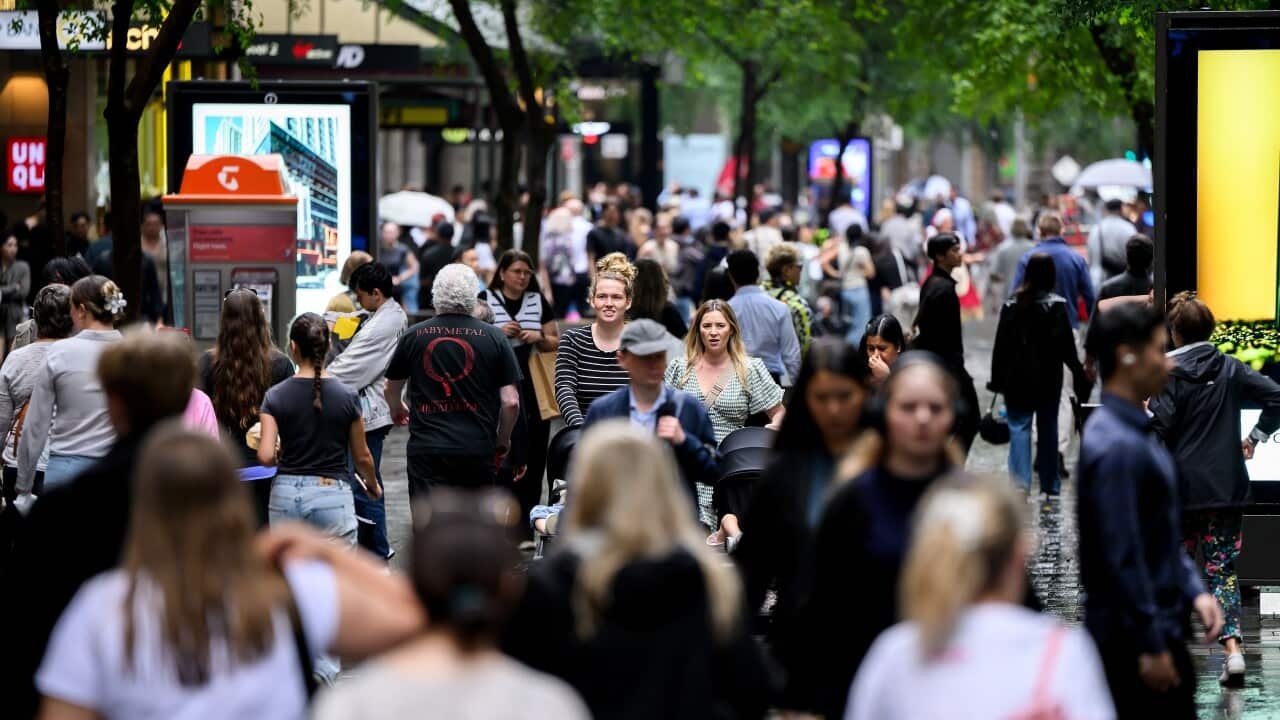Key Points
- White House aides have reportedly drafted a plan to impose 20 per cent tariffs on most goods imported into the US.
- Anthony Albanese has vowed not to compromise Australian trading standards for the US.
- Trump will unveil his long-awaited global tariff plan on Thursday Australian time.
Ahead of United States President Donald Trump's expected release of more trade tariffs on Thursday, a new US report has taken aim at Australian meat, apples, pears and pharmaceuticals.
The report released by the US Trade Representative has highlighted "foreign barriers" to US trade. It also mentions Australia's that requires technology platforms to pay local media organisations for content, and requirements on streaming services to feature Australian content.
Prime Minister Anthony Albanese said the news bargaining code, pharmaceuticals, and biosecurity measures on the import of meat and fruit in particular were not up for negotiation.
"Those issues are not up for negotiation from the Australian government," he told reporters on Tuesday.
"We will defend Australia's interests. The idea that we would weaken biosecurity laws is like cutting off your nose to spite your face."
Australia prohibits the import of uncooked poultry meat from all countries except New Zealand, it has strict controls on beef and pork, and also prohibits the importation of apples and pears from the US due to concerns about several pests.
Concerns were also raised about "delays" to notifications to patent holders on pharmaceuticals.
In a rare moment of unity amid an intensifying election campaign, Opposition leader Peter Dutton said he agreed with Albanese's stance.
"I agree with the prime minister's position. I'm not going to compromise issues of national significance and importance," Dutton said.
It comes as plans for 20 per cent tariffs on most goods imported to the United States are expected to be announced on Thursday, on what Trump has dubbed 'Liberation Day'.
For weeks, Trump has flagged 2 April in the US as the deadline by which the country will impose an array of new tariffs.
He said on Sunday that reciprocal tariffs will target all countries that impose duties on US goods, and the White House said on Monday that any country that has "mistreated" the US should expect to receive a tariff.
Trump also says a 25 per cent tariff on car imports will take effect on 3 April.
Trump is due to unveil his tariff plan at an event in the Rose Garden at 4pm on Wednesday local time, which is 7am AEDT on Thursday.
White House officials say no final decision has been made about the size, scope, and target of the tariffs.
The White House said on Tuesday that the reciprocal tariffs Trump will announce on 2 April will go into effect immediately, and car tariffs will proceed as scheduled.

Factories around the world, from Japan to the United Kingdom to the United States, had an activity slump in March as businesses braced for Trump's tariffs, although some registered a bounce in the race to get goods to consumers before the new measures hit. Source: AP / Jae C. Hong/AP
The administration anticipates the new duties could raise more than US$6 trillion ($9.6 trillion) in revenue that could be sent on to US citizens as a rebate, the paper reported.
A White House aide said any report ahead of tomorrow's event is "mere speculation".
The Republican president has already imposed tariffs on aluminium and steel imports and has increased duties on all goods from China, raising tensions with the country's largest trading partners.
Canada has vowed to respond with its own tariffs, and US companies say a 'Buy Canadian' movement is already making it harder for their products to reach that country's shelves.
Other countries have threatened countermeasures as well.
Signs are already emerging that the US economy is losing momentum, which some experts argue is due, in part, to uncertainty fostered by Trump's chaotic approach to economic policy making.



